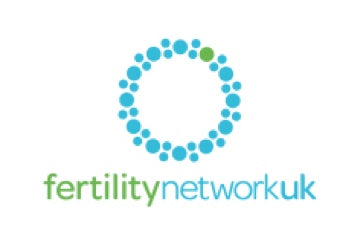Frozen Embryo Transfer Treatment at a Private Fertility Clinic in London
WE'VE FEATURED IN





What is frozen embryo transfer treatment?
A frozen embryo transfer (FET) cycle is a process to help you become pregnant. FET uses embryos (fertilized eggs) that have been frozen following IVF treatment.

What happens during frozen embryo transfer?
During the FET cycle, your embryos are thawed and placed into your uterus. This is done at a time in your menstrual cycle that best supports a pregnancy. You will be given hormones to help your endometrium (lining of your uterus) accept the embryos. Alternatively, this can also be done sync with your natural cycle.

Meet Dr Irfana Koita – Frozen Embryo Transfer Specialist
At IVF Matters, Dr Irfana Koita provides personalized Frozen Embryo Transfer (FET) care in London, taking time to understand your unique fertility journey. Her one-to-one approach is at the heart of our clinic.
A FRCOG fellow, trained in assisted conception at King’s College Hospital, London, and holding a Masters in Healthcare Leadership from Cornell University, Dr Koita has over 18 years of experience and is nationally recognized in IVF and fertility treatments.
She delivers evidence-based guidance, tailored treatment, and compassionate support every step of the way.
Book your consultation today and take the next step toward parenthood with confidence.
Do you have embryos in storage at another clinic? We can take over your care
A NEW WAY TO PAY FOR FERTILITY TESTS AND TREATMENTS
Buy Now Pay Later
Payments in instalments. Soft credit checks! Quick applications! Select at checkout.

Monthly payments over 12 months

Monthly credit card payments

Monthly payments up to 7 years

Take the next step
If you would like to find out more about frozen embryo transfer or any other of our fertility treatments, get in touch with our team today.
We offer free 10-minute advisory consultations to anyone looking to explore their fertility options. This free call is the perfect opportunity to ask any questions you may have and gain confidence in making the right decision regarding your fertility options.
FAQs
The FET process is relatively simple, and can be performed in a natural cycle, without the use of medication, or in a medicated cycle.
The process starts with a consultation and some scans to ensure that your body is ready to begin. As the embryo already exists, this treatment does not involve stimulation of the ovaries or egg collection.
Two weeks before your period is due to start, you’ll need to come into the clinic and discuss your treatment plan with one of our nurses. Once your treatment starts you will have a few ultrasound scans to check when your uterus is ready for the transfer.
The embryo needs to be thawed before it can be implanted, and will be done so on the day of the transfer. It is then implanted in the uterus using a soft catheter and under ultrasound guidance.
The procedure doesn’t require you to go under any anaesthesia, as it shouldn’t be too uncomfortable for you.
When you have a FET, there are two options: a natural cycle FET and a medication-controlled FET.
Natural cycle FET
In a natural cycle FET, your uterine walls will be left to thicken naturally as they would during your regular menstrual cycle. We will check on your cycle and the thickness of your uterus through ultrasound scans so that we know when to trigger ovulation.
Once ovulation has been triggered, the embryo transfer will be completed around one week afterwards. You may be offered progesterone during the second half of your cycle, but this will depend on your personal treatment plan.
Medication-controlled FET
Most FET procedures are medication controlled. This may also be offered if your cycle isn’t very regular, as it allows us to time the embryo transfer more accurately.
Hormones will be used to enable your uterus to develop in thickness when needed, and we’ll check it regularly through ultrasound scans. Once the uterus is at the right thickness, then we can start the second part of your hormone medication and complete the FET about one week afterwards.
The medication-controlled FET shouldn’t take you any longer than a natural cycle, but it will depend on how quickly your uterus thickens.
IVF Matters provides all-inclusive, transparent treatment packages with no hidden costs. Flexible payment plans, including instalments and “buy now, pay later” options, are available to make treatment more accessible. Please see our pricing page for full details.
Contact Us
Our Location
Working With








